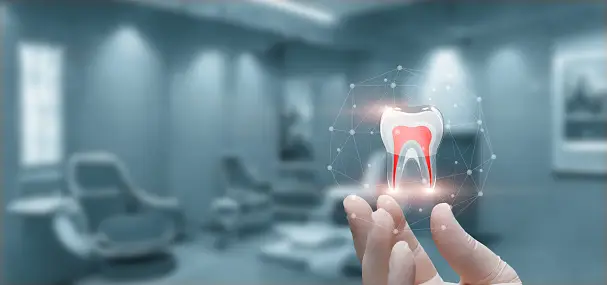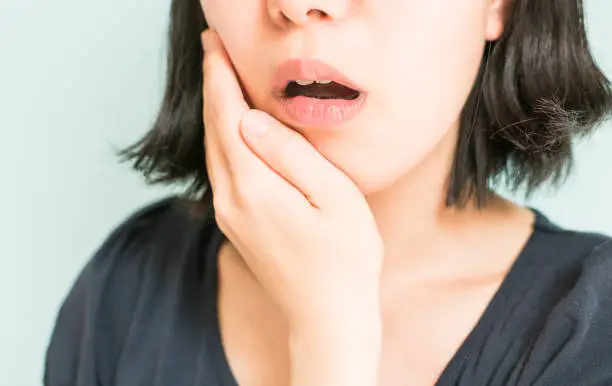Do you have crown pain? Many people are astonished to hear that a dental crown won’t prevent them from tooth discomfort, even if it can successfully cover and protect a damaged tooth.
Actually, a tooth with a crown is no less prone to issues than a tooth without one.
The area where the crown rests may feel pressure, sensitivity, or discomfort. Alternatively, you can have a persistent toothache.
There are numerous causes of dental crown pain. You may read more about potential causes of pain and techniques to relieve it in this article.
Table of Contents
A dental crown: what is it?

A cap that is placed over a broken tooth is called a dental crown. It covers the visible portion of the tooth and is glued in place.
The function of a crown is to safeguard a tooth while restoring its size and shape. In order to support a bridge—a prosthetic that plugs a gap in your mouth—dental crowns may occasionally be positioned on each side of a lost tooth.
Several materials, such as porcelain, ceramic, and metal, are used to make crowns.
After a root canal, you might require a dental crown to preserve the tooth. Alternatively, in the event that you possess a:
- Huge hole that a filling cannot adequately treat
- Tooth that is weak or cracked
- Missing tooth that needs a bridge or implant
- Stained or malformed teeth
What could be causing pain in a crown-covered tooth?

There are numerous causes of pain in a crowned tooth, such as:
Dental caries beneath the crown
At the boundary between the tooth and the crown, tooth decay or a new cavity may develop since the tooth beneath the dental crown is still alive. This may result in localized pain that doesn’t go away.
You may require a root canal if a cavity in your tooth becomes so big that it starts to harm the nerve.
Infection
In the event that your crown was installed without a root canal, the tooth still has nerves. Sometimes an infection results from the crown applying pressure to a damaged nerve. Alternately, outdated fillings behind the crown may leak bacteria, infecting the nerve and causing infections.
Among the symptoms of an infection are:
Sore gums following crown surgery
Following the crown placement operation, you may have some short-term discomfort. This soreness should subside after about two weeks. Speak with a dentist if you have severe pain after getting a crown placed or if the pain doesn’t go away after two weeks.
A fractured tooth or crown
A tooth beneath a crown or a fractured crown may hurt a little. The crack may lead you to be sensitive to heat, cold, or air. You’ll need to get your crown fixed if you discover it is cracked, loose, or broken.
Teeth grinding (bruxism)
Bruxism, the condition in which you grind your teeth at sleep, can exert pressure on your crown and result in pain.
Recessed gums
If the gums surrounding your crowned tooth have receded and exposed a portion of the tooth’s root, you may experience discomfort and sensitivity. Harsh brushing might lead to gum recession. Gum recession increases the risk of plaque accumulation and gum disease.
The crown doesn’t fit correctly
You could experience discomfort if your crown is not fitted properly. Your bite and smile may also be impacted by an incorrect fit. A painful bite usually indicates that the crown is positioned too high on the tooth.
A dental crown ought to fit into your bite in the same way as your natural teeth do. If something feels “off” with your bite, headaches and jaw pain may also result.
What could be causing pain in a crown-covered tooth?

The origin and intensity of dental crown discomfort will determine how it is treated. Here are a few easy actions that could help ease the discomfort:
Pain medications
If you have a toothache, over-the-counter (OTC) drugs like acetaminophen (Tylenol) or ibuprofen (Advil) can give you some brief comfort.
Saltwater rinse
Saltwater mouthwash has the potential to decrease pain and inflammation. Stir half a teaspoon of salt into a cup of warm water and swirl for approximately thirty seconds. Several times a day, repeat the rinse.
Herbal remedies
Despite the lack of scientific evidence supporting its efficacy, some users claim experiencing pain alleviation after utilizing herbal medicines. A few of these can be administered straight to the tooth that is damaged. Often used medicines to relieve dental discomfort are:
- clove
- garlic
- turmeric
- ginger
- chamomile
Problematic foods
After receiving a crown, avoiding sticky, sugary, and hard foods may help reduce your discomfort. Foods that are hot or cold might also be triggers. Eat everything at room temperature if possible.
Treatment for bruxism
If your bruxism is causing your pain, your doctor might suggest one of several bruxism treatments. Sometimes the solutions are mouth splints or mouth guards.
When to visit the dentist
You should consult a dentist if your tooth pain is severe or does not go away. You might require tooth extraction, crown replacement, or root canal therapy.
How to avoid pain when wearing a dental crown

You can avoid dental crown pain by practicing good oral hygiene. Make sure you:
- Brush twice a day
- Floss every day
- Visit a dentist for routine examinations
Furthermore, chewing on hard things like ice might harm a crown.
Important lessons learned
A crown placement may cause some discomfort initially, but it should go away in a few weeks.
Your discomfort could be coming from cavities, cracked teeth, infections, or other problems. Consult a dentist to determine the cause of your toothache if it persists.
